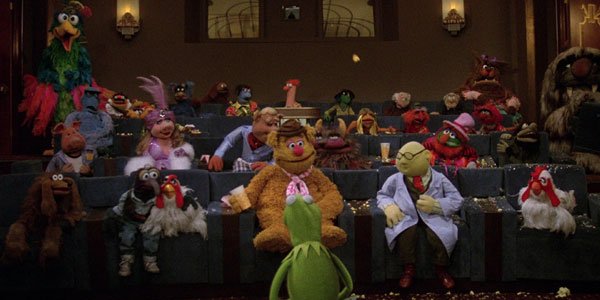The MPAA Changes Its Piracy Rules, Here's What Is Different

If you’ve been in a movie theater anytime in the last decade, you’ve probably seen those ads before the film reminding you that movie piracy is illegal. The Motion Picture Association of America hates it. They see people recording films in the theater as one of the biggest problems facing the industry. They even have a specific policy for how theaters should deal with pirates. Interestingly, the newest version of that policy was just released, and it’s actually slightly softer on the pirates.
The document, entitled Best Practices to Prevent Film Theft is a cooperative project between the MPAA and the National Association of Theater Owners, which actually uses the acronym NATO. While the majority of the overall rules have not changed, the document is noticeably softer in tone as compared to the 2014 version of the same document. Ideas that were written as things theaters "should" do are now simply suggestions of things they "may" do. At the top of this list, calling the cops. The 2014 document instructed theaters to call the police in the case that they apprehended a pirate in the theater and let the cops decide how to proceed. The new version simply states that calling the police is an option.
Theater managers have the option to immediately alert law enforcement authorities whenever they have clear indications that prohibited activity is taking place, or managers can the stop the activity without law enforcement assistance.
The other major change to the document is that a previously existing bounty program, which gave theater employees $500 every time they caught a movie pirate, has apparently been completely abolished. According to TorrentFreak, the web page that detailed the reward program is no longer viewable on the NATO website.
There’s no discussion of the reason for the changes within the document so it’s unknown what the reasons are behind this shift to a much lighter tone. The MPAA is certainly not looking to reduce the pressure on pirates overall, as they’re still filling suites against online streaming sites like Movietube. It may be that because of sites like that, which usually host much higher quality versions of the films, the issue of people recording with their cell phones just isn’t as big an issue as it once was, so efforts are being directed elsewhere. It could also be an attempt to help with image as the MPAA is not the most loved organization in the world.
It could also be theater owners assuming a bit more control over their theaters. Some owners may not have appreciated the more authoritarian aspect of the previous "best practices," instead wanting to handle any issues within their own theater their own way. This seems to be doing exactly that, giving the theater owners more power to make decisions.
What do you think of the changes? Is the MPAA actually beginning to see the light regarding piracy, or are they simply rearranging the deck chairs during a screening of Titanic.
CINEMABLEND NEWSLETTER
Your Daily Blend of Entertainment News

CinemaBlend’s resident theme park junkie and amateur Disney historian, Dirk began writing for CinemaBlend as a freelancer in 2015 before joining the site full-time in 2018. He has previously held positions as a Staff Writer and Games Editor, but has more recently transformed his true passion into his job as the head of the site's Theme Park section. He has previously done freelance work for various gaming and technology sites. Prior to starting his second career as a writer he worked for 12 years in sales for various companies within the consumer electronics industry. He has a degree in political science from the University of California, Davis. Is an armchair Imagineer, Epcot Stan, Future Club 33 Member.
Most Popular






